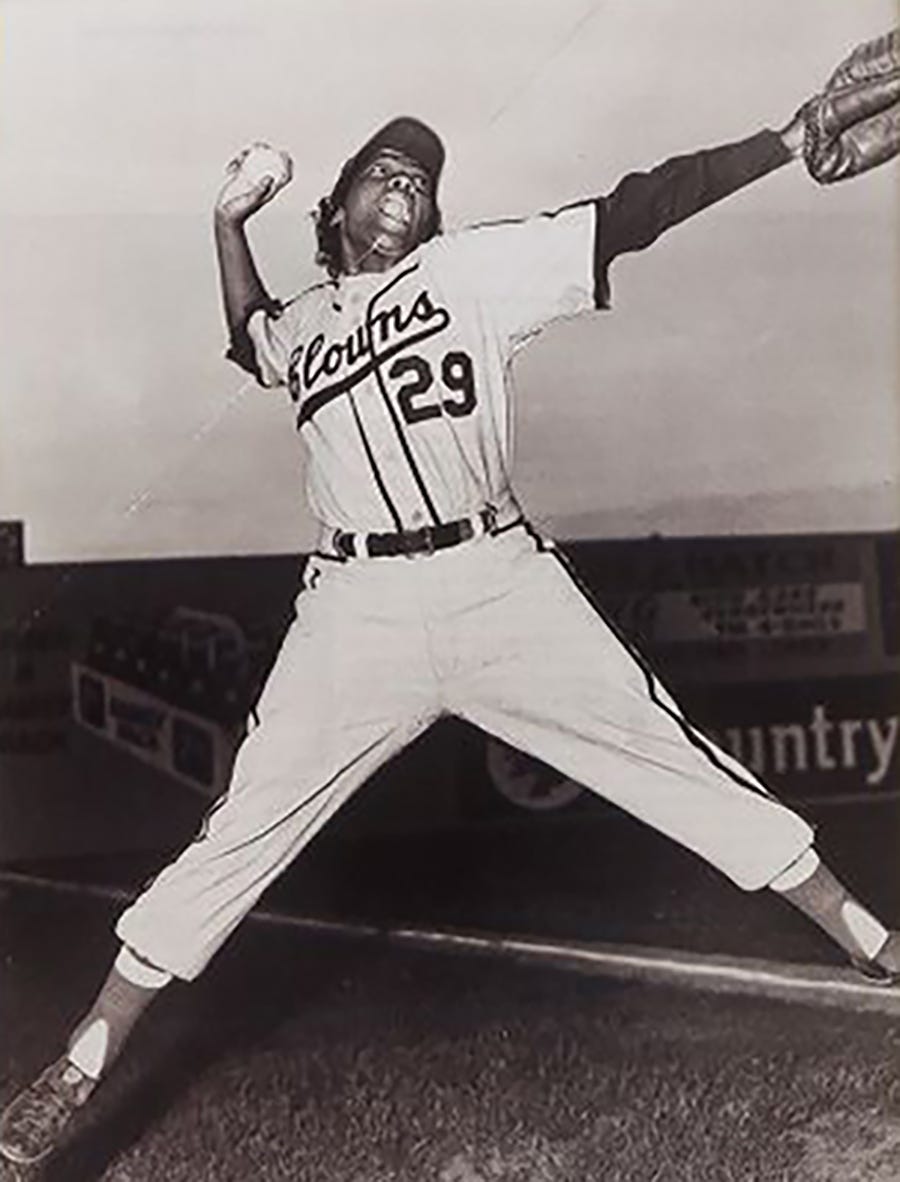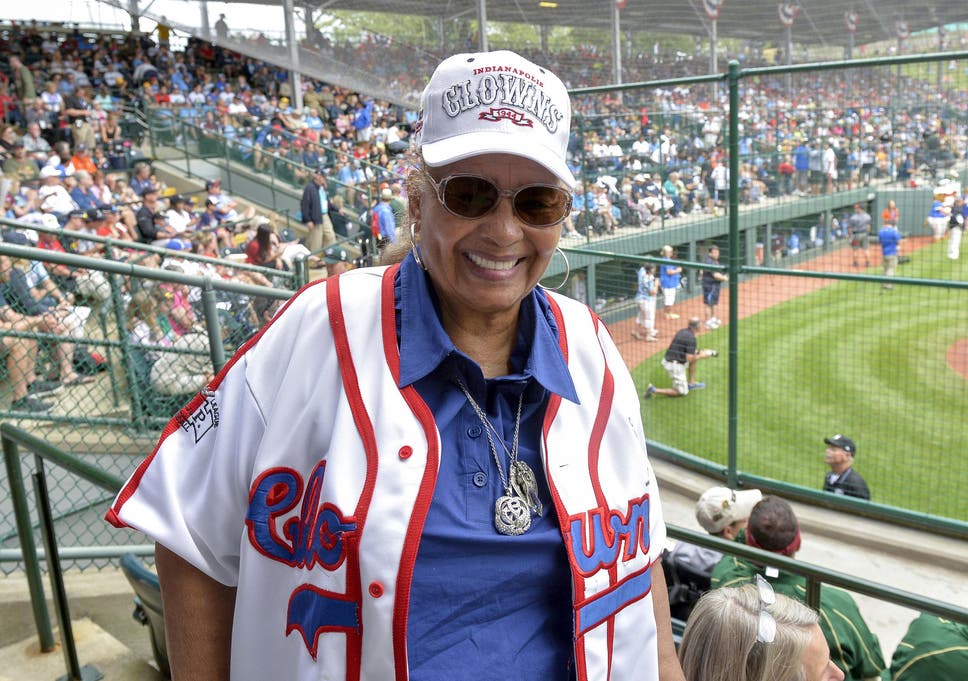As a young girl, Mamie “Peanut” Johnson loved to play baseball. Her love and passion for the game started when she was only about seven, and she went on to become the first female pitcher to play in the Negro Leagues.
She would play baseball with her Uncle Leo “Bones” Belton. They would make bats out of tree limbs, bases out of pie plates and balls from rocks wrapped in tape. She developed her baseball skills.
Born Mamie Belton on September 27, 1935 in Ridgeway, South Carolina, it was difficult getting to play or joining the All-American Girls Professional Baseball League as a black girl. She was not allowed anywhere on the field.
Johnson later stated, “If I had played with white girls, I would have been just another player, but now I am somebody who has done something that no other woman has done.”

However, that did not deter her from becoming one of only three women to play baseball in the Negro Leagues and historically, the only female to pitcher in the 1950s.
She attended Thorntree School, a two-room schoolhouse. Johnson lived with her maternal grandmother, Cendonia Belton since her parents were separated. Her grandmother supported her interest in playing ball and gave her the confidence to always follow her heart, she said.
Around 1945, her grandmother died from stroke and Johnson moved to New Jersey where she lived with an aunt and uncle.
Johnson always played ball. She couldn’t play girls’ softball as she was already used to playing hardball with the boys and she was good at it. She joined an all-white boys’ team, organized by the Long Branch Police Athletic Club (PAL) becoming the only girl and only black on the team.

She was able to outsmart opponents who underestimated her as she developed her strong right pitching arm. In the early 1950s Johnson attended a National League tryout in Alexandria, Virginia but wasn’t allowed to try out.
She met and married Charles Johnson in 1952 and the couple had a son. By 1953, Johnson was working in an ice cream shop and playing baseball over the weekends.
Johnson played with a few local minor league teams such as the Alexandria All-Stars and St. Cyprians. She signed with the Indianapolis Clowns and became the first woman pitcher.
She was also the second baseman in the Negro Baseball Leagues in 1953 replacing their second baseman, Hank Aaron, who had gotten an opportunity with the integrated Major League Baseball.
Johnson said stepping out on the pitcher’s mound for her first game with the Clowns was the highlight of her life. She won the game, and the respect of her male teammates.
/https://public-media.si-cdn.com/filer/fc/e0/fce0379e-759e-4698-a3ea-bf1bd0615458/ap_98021401406.jpg)
Johnson would pitch for six, seven, or nine innings, striking out her fair share of players. Johnson was only 5 ft 3 inches and was mocked as having looked like a peanut. That was how she got her nickname “Peanut”.
According to her biography, when Johnson wasn’t pitching, she played second base. She hit between .252 and .284 in each season she played winning 33 games and losing eight games only all through her career. She was one of the top pitchers in league history.
She earned about $400 to $700 a month. A 1992 movie titled ‘A League of Their Own’ depicted how Satchel Paige helped Johnson perfect her curveball before their opposing teams went on to play each other.
Johnson retired from baseball in 1955, and took up another career as a Licensed Practical Nurse. She worked as a nurse for 40 years while coaching youth league baseball teams.

Her efforts did not go without recognition. She was honoured as a female baseball legend by former President Bill Clinton and former First Lady Hillary Clinton in 1996. She also received the Mary McLeod Bethune Continuing the Legacy Award.
In 2003, a book about Johnson’s life story, “A Strong Right Arm,” was released. In 2005, a one woman theatrical show about her life, “Change Up,” premiered at Brown University. Johnson also joined DC mayor Anthony Williams at the first game of the Washington Nationals in 2005.
After her retirement, she worked in a Negro League Baseball memorabilia shop owned by her son in Mayland. The history-making ballplayer passed away on December 18, 2017, in Washington, D.C. at the age of 82.










